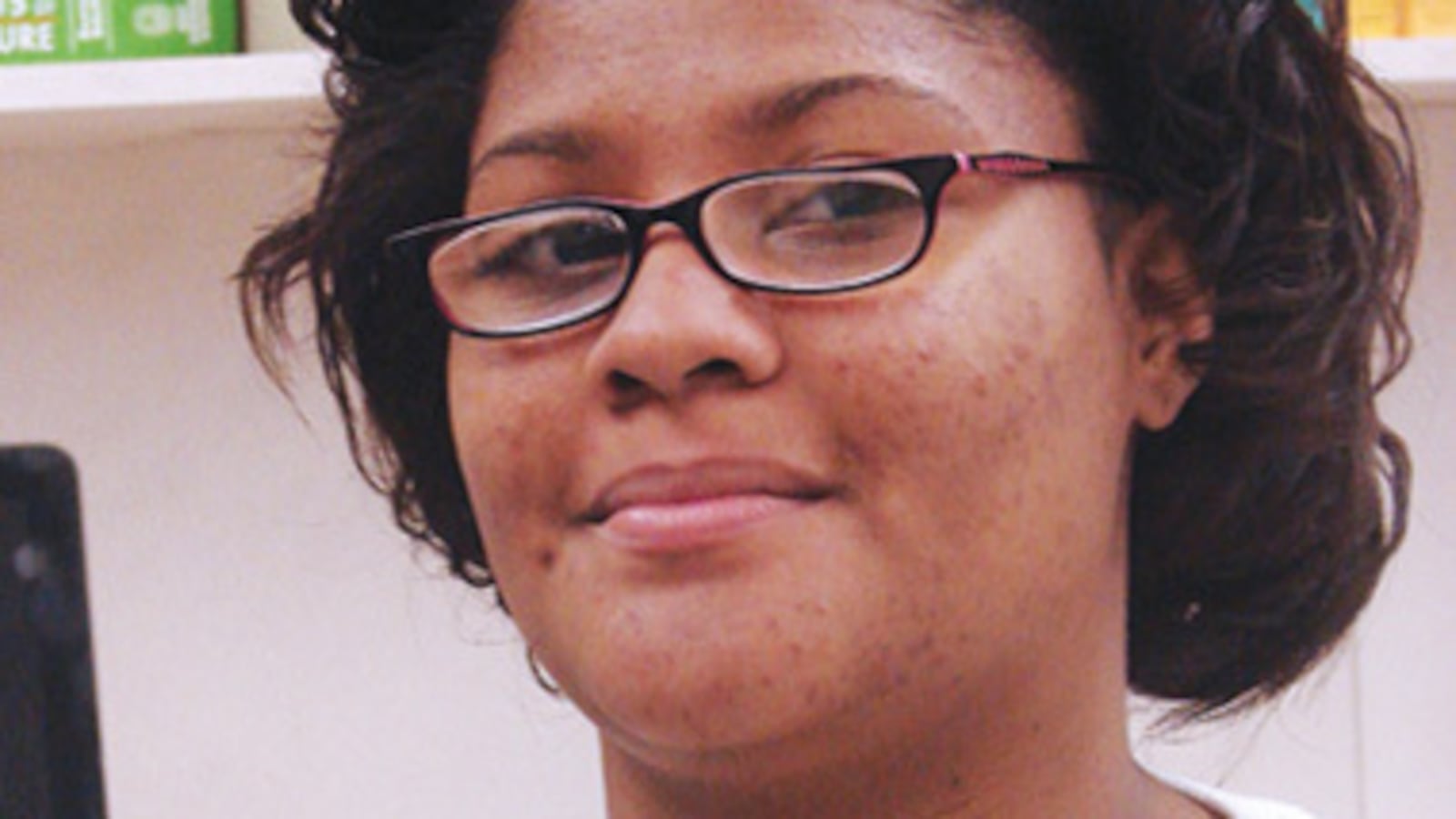This article was originally published in The Notebook. In August 2020, The Notebook became Chalkbeat Philadelphia.
There came a point, says 18-year-old Terrez Freeman, when “I just gave up.”
It wasn’t after she was first put into foster care – she was only six then.
And it wasn’t in the midst of bouncing between eight foster homes and five schools by the time she was 13 – “it didn’t occur to me that maybe it wasn’t a good thing that I kept switching schools,” she says.
Despite the hardships she’s faced, says Freeman, she didn’t begin to lose her way until 8th grade at Benjamin Franklin Elementary, when she was arrested – wrongly, she still maintains – for assaulting a teacher.
After a school fight, Freeman says a teacher tried to take her to the principal’s office.
“I was like, ‘I didn’t have nothing to do with this,’ but [the teacher] just kept gripping me up, so I pushed her. [But] she said that I punched her and kicked her down the steps.”
Five years later, Freeman has never been back in a traditional public school. She has, however, spent time in four different alternative educational settings, where she says things got worse before suddenly turning around.
Her downward spiral truly began, she says, at CEP-Hunting Park, a privately run disciplinary school that is now defunct.
“It was horrible,” said Freeman, citing frequent fights and little meaningful schoolwork. “I was like, ‘I go to a school that I hate, I’m messing up, and nothing is going to come from me trying to change.’”
Angry and stressed out, she began smoking marijuana “all day, every day.”
“It just made me not care even more,” she says.
As a result of her continued troublemaking, says Freeman, she was sent to Carson Valley, a residential treatment center in Flourtown.
After a failed drug test, she was kicked out for “failure to adjust.”
“I was high the day they gave me the drug screen,” said Freeman.
Her final placement was at Gannondale, a residential treatment facility in Erie. What started as a nine-month court-mandated stay turned into over two years away from home.
“I was fighting all the time, [with] kids and staff,” says Freeman.
But in November 2009, her grandmother died. “All she ever really wanted for me was to come home,” Freeman said. It was the shock the 16-year-old needed to drop her defiance.
Six months later, she had earned her release.
Like all Philadelphia youth returning from court-ordered juvenile justice placements, Freeman went through the School District’s process to assess her academic and behavioral readiness to return to school, called RETI-WRAP.
She was placed in the District’s new Philadelphia Youth Development Academy (PYDA), one of several alternative and accelerated educational programs in the building that used to house CEP-Hunting Park.
The odds are still stacked against her. According to a 2006 study commissioned by Project U-Turn, 90 percent of students with an out-of-home placement never earn their diplomas. Freeman is still in foster care and still on probation, required to attend sobriety outpatient therapy – “kind of like an AA meeting” – four days a week. She is also expecting her first child this July.
But she has built upon the 13 credits she accumulated while in placement and is on track to get her diploma this June. As PYDA’s class president, she is busy organizing fundraisers to help students with prom expenses, and was recently accepted into the culinary arts program at Art Institute of Philadelphia.
“[Things] started working when I started caring [again],” says Freeman. “It seemed like when I didn’t care, nobody else cared.”

